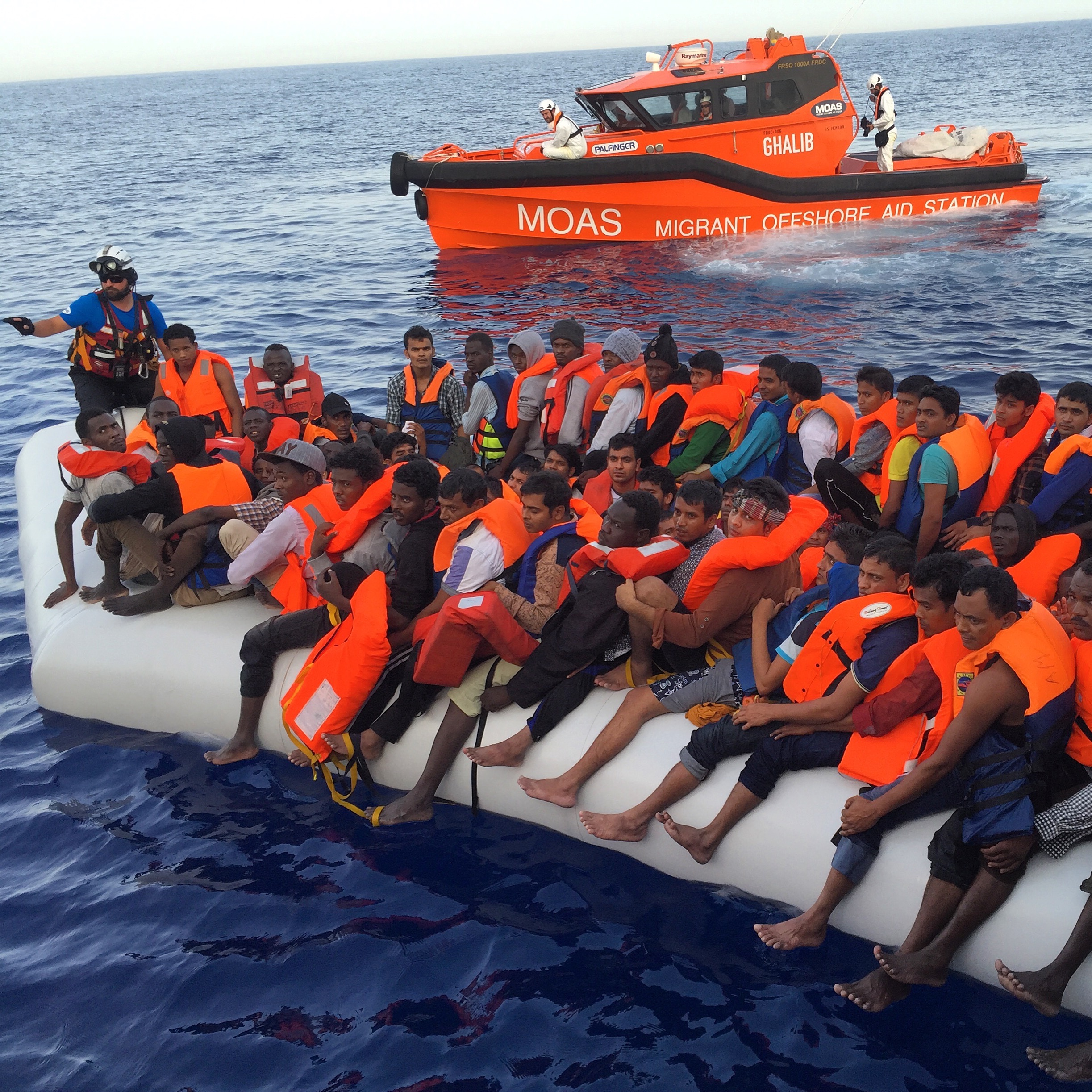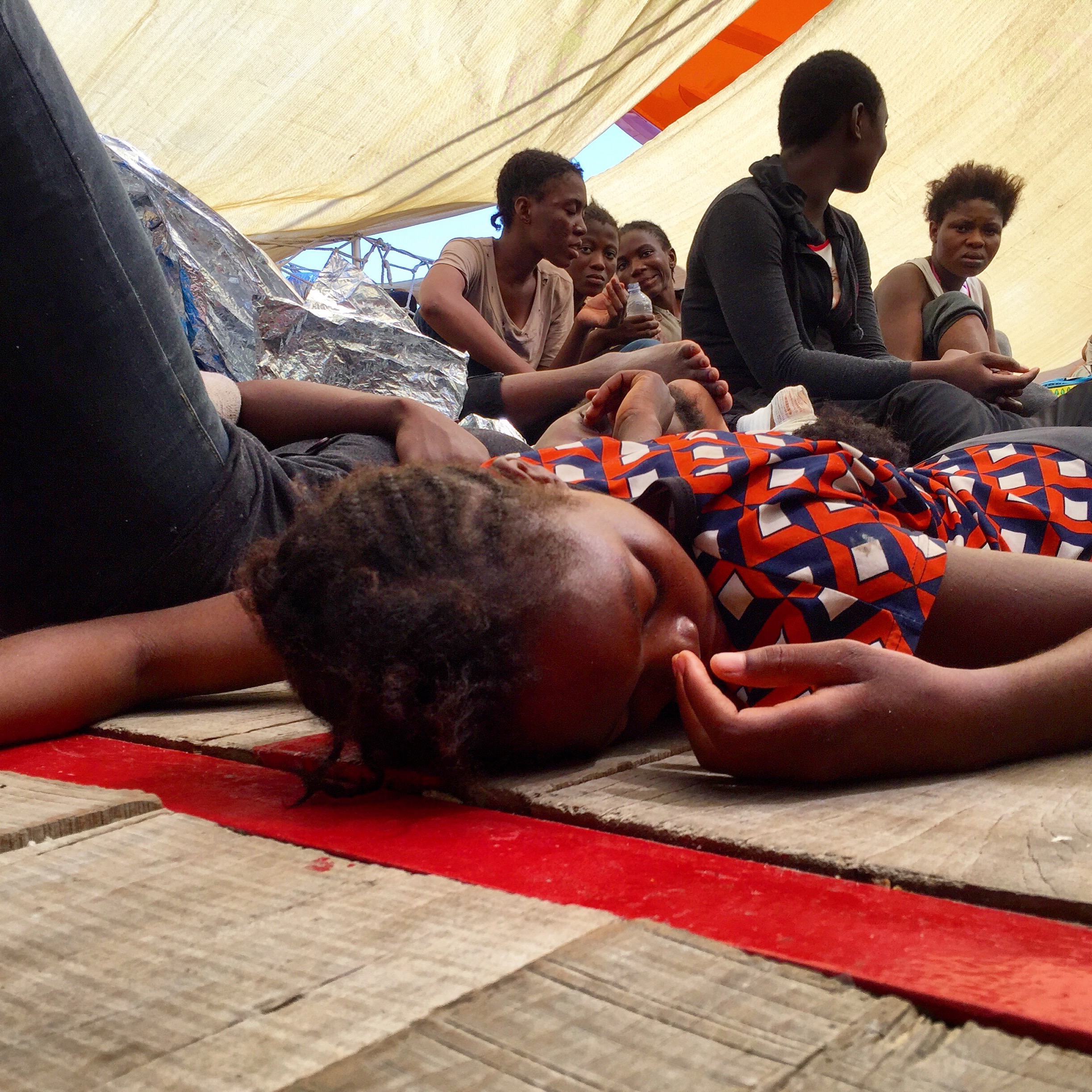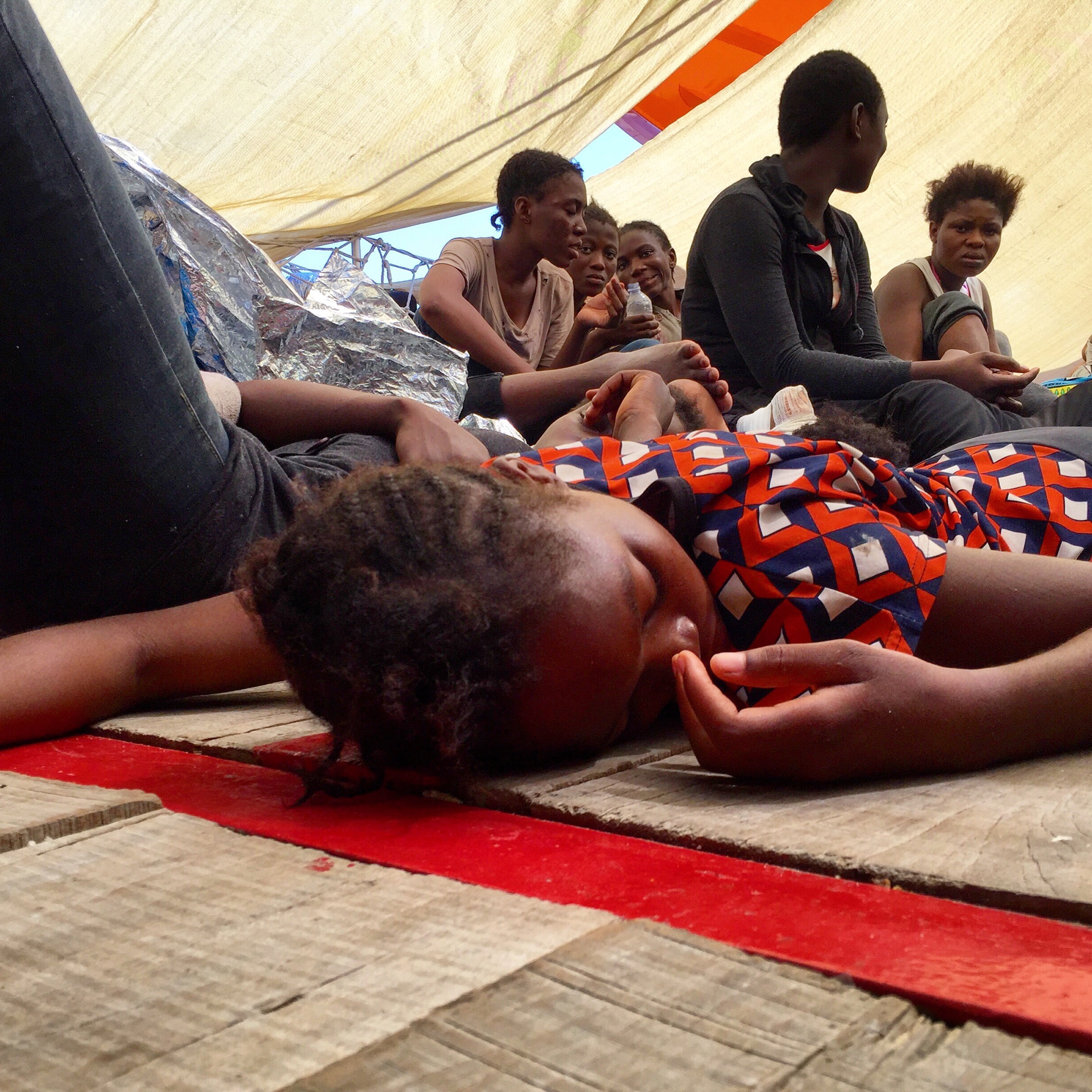
Almost every day, I receive an email from the International Organization for Migration containing the latest update on migration issues around the world. Many of you may not know that more than 60 million people are on the move, either as refugees fleeing horrendous situations in their homelands or economic migrants seeking a way out of a life of poverty.
Today, the IOM update included a number. Migrant arrivals in Europe via the Mediterranean: 302,149. Deaths at sea: 3,501.
The numbers are higher than they were last year at this time, yet it seems to me that European nations are addressing the crisis in an incremental way that won’t likely lead to a permanent solution.
In July, I spent almost a week with the Migrant Offshore Aid Station, a private rescue outfit started by American millionaire Chris Catrambone and his wife, Regina. They were sickened by what they perceived as a lack of response from governments. They were called to action by Pope Francis who visited the Italian island of Lampedusa, then a hub for migrants, and shamed the rich countries for a lack of action.

I’ve reported on natural disasters that kill thousands and leave even more in dire conditions. I’ve reported from war zones, where I have seen the worst of humanity unfold before my eyes.
I did not expect I would feel the kind of emotions I did during my days on the Topaz Responder, a ship chartered by MOAS to patrol the Mediterranean with the sole purpose of plucking desperate people from the sea.
In one day, MOAS rescued 366 people. Luckily, everyone had survived. I spoke with many of those on board. Some had traveled for months and experienced the worst physical conditions as well as abuse by human smugglers and Libyan militias. A Nigerian woman, Esther, told me she was right next to her brother he was shot and killed by gunmen.
Even after those harrowing journeys, refugees and migrants then board flimsy boats to make a long crossing to Europe. Some die of dehydration. Most of the deaths are from drowning and in the winter months, hypothermia.
I thought about the kind of desperation that drives human beings to risk everything for a better life. I can’t fully understand it because I live such a privileged and comfortable life compared to them. But I try hard to report their stories.
Yes, we should be outraged when a photograph of a shell-shocked Syrian boy goes viral on social media. But that’s not enough.
It’s important for those of us who live in rich countries to know the stories of people who were born to poor countries rife with corrupt and callous leaders who do little for their people. It’s important to open our eyes to the suffering of people who endure constant war and conflict.
I encourage everyone to think about how huge the numbers are in the refugee crisis. Think about what it would feel like if you were forced from your home knowing, that you may never see it again. What if you were separated from your mother or father, your husband or wife, your children?
Here’s a link to a few stories I’ve written recently on the crisis, including the one I reported thanks to MOAS.
- Fatal crossings on the Mediterranean
- How the Syrian crisis came to small-town Canada
- Refugees face hurdles in America
- The long, sad story of Fallujah
- Central American children come to America

